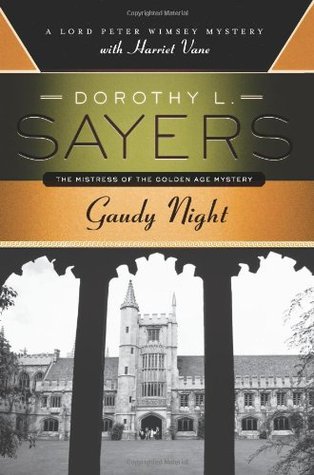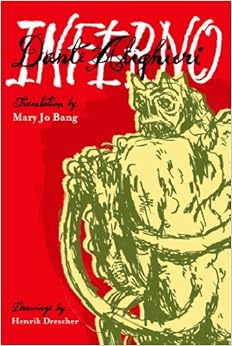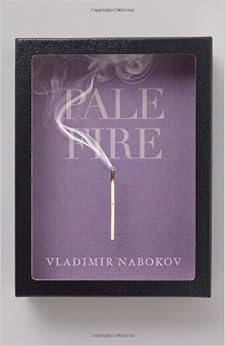All Time Favorite Books
You're kidding, right? There's just no way. No way. I love too many books too much to narrow it down to ten. BUT NARROW I WILL, dear readers. NARROW I WILL.
The specific instructions for this top ten said that we should pick our top ten "from the past 3-5 years." I am confused by these instructions. Books that we've read in the past 3-5 years? That's hard to remember (I only recently started keeping track). Books published in the past 3-5 years? Almost none of my favorite books fall in that category.
I decided that "favorites of the past 3-5 years" meant that I wouldn't include childhood favorites, or books I adored years ago but haven't cracked since. The following, in no particular order, is a list of books I currently love or have loved quite recently. These are all books I like to return to. If I haven't done a full re-read of all of them (and six of them I have fully re-read, and several of those I have re-read more than twice), they are all books that I like to pick up and page through and be reminded of the delights therein. These are all books I could not possibly forget.

Persuasion, by Jane Austen
Regret, lost love, the hope of redemption. Biting social satire just as applicable today. The tension between being well-advised by others and choosing one's own way. I could not love this novel more. It is perfect in every way.
“She understood him. He could not forgive her — but he could not be unfeeling. Though condemning her for the past, and considering it with high and unjust resentment, though perfectly careless of her, and though becoming attached to another, still he could not see her suffer, without the desire of giving her relief. It was a remainder of former sentiment; it was an impulse of pure, though unacknowledged friendship; it was a proof of his own warm and amiable heart, which she could not contemplate without emotions so compounded of pleasure and pain, that she knew not which prevailed.”
 The Supper of the Lamb, by Robert Farrar Capon
The Supper of the Lamb, by Robert Farrar CaponThis book about theology and food magically combines the three most important things in my life.
“O Lord, refresh our sensibilities. Give us this day our daily taste. Restore to us soups that spoons will not sink in, and sauces which are never the same twice. Raise up among us stews with more gravy than we have bread to blot it with, and casseroles that put starch and substance in our limp modernity. Take away our fear of fat and make us glad of the oil which ran upon Aaron's beard. Give us pasta with a hundred fillings, and rice in a thousand variations. Above all, give us grace to live as true men — to fast till we come to a refreshed sense of what we have and then to dine gratefully on all that comes to hand. Drive far from us, O Most Bountiful, all creatures of air and darkness; cast out the demons that possess us; deliver us from the fear of calories and the bondage of nutrition; and set us free once more in our own land, where we shall serve Thee as Thou hast blessed us — with the dew of heaven, the fatness of the earth, and plenty of corn and wine. Amen.”
 The Complete English Poems of John Donne
The Complete English Poems of John Donne Either you love him or you don't, and if you don't, well, I don't think I can help you. I am very fond of his religious poetry (and of course my blog title is a snippet from one of the Holy Sonnets) but his romantic poetry is second to none.
O ! Do not die, for I shall hate
All women so, when thou art gone,
That thee I shall not celebrate,
When I remember thou wast one.
But yet thou canst not die, I know;
To leave this world behind, is death;
But when thou from this world wilt go,
The whole world vapours with thy breath.
Or if, when thou, the world's soul, go'st,
It stay, 'tis but thy carcase then;
The fairest woman, but thy ghost,
But corrupt worms, the worthiest men.
O wrangling schools, that search what fire
Shall burn this world, had none the wit
Unto this knowledge to aspire,
That this her feaver might be it?
And yet she cannot waste by this,
Nor long bear this torturing wrong,
For more corruption needful is,
To fuel such a fever long.
These burning fits but meteors be,
Whose matter in thee is soon spent ;
Thy beauty, and all parts, which are thee,
Are unchangeable firmament.
Yet 'twas of my mind, seizing thee,
Though it in thee cannot perséver ;
For I had rather owner be
Of thee one hour, than all else ever.

Religio Medici, by Sir Thomas Browne
It is circumlocutious, strange, and wonderful. It is one of the best explorations of personal thought and belief I have ever read. Like others I came to this book through Gaudy Night, and I was not
disappointed.
“Men that look upon my outside, perusing onely my condition, and fortunes, do erre in my altitude; for I am above Atlas his shoulders. The earth is a point not onely in respect of the heavens above us, but of that heavenly and celestiall part within us: that masse of flesh that circumscribes me, limits not my mind: that surface that tells the heavens it hath an end, cannot perswade me I have any; I take my circle to be above three hundred and sixty, though the number of the Arke do measure my body, it comprehendeth not my minde: whilst I study to finde how I am a Microcosme or little world, I finde my selfe something more than the great. There is surely a peece of Divinity in us, something that was before the Elements, and owes no homage unto the Sun.”
Gaudy Night, by Dorothy Sayers
Obviously I had to love this book a lot to be so besotted I looked up all the books it referred to and read them, too. But yes, that's how much I loved this book.
 Gaudy Night is a mystery, but only nominally. Really it is about being a woman and trying to figure out what it is you want in the morass of what Society thinks you should want. It is a bildungsroman but not of a girl becoming a woman; rather of a young woman becoming a mature woman. Harriet is sorting out how to love a man and yet maintain her own personhood. This book is also about the false dichotomy between academia and the "real world;" defining what morality really means; and the nature of mature love. It has a mystery wrapped up in all of that — oh, and a marriage proposal conducted in Latin. I have been occasionally tempted to sleep with this book under my pillow.
Gaudy Night is a mystery, but only nominally. Really it is about being a woman and trying to figure out what it is you want in the morass of what Society thinks you should want. It is a bildungsroman but not of a girl becoming a woman; rather of a young woman becoming a mature woman. Harriet is sorting out how to love a man and yet maintain her own personhood. This book is also about the false dichotomy between academia and the "real world;" defining what morality really means; and the nature of mature love. It has a mystery wrapped up in all of that — oh, and a marriage proposal conducted in Latin. I have been occasionally tempted to sleep with this book under my pillow.“The young were always theoretical; only the middle-aged could realize the deadliness of principles. To subdue one’s self to one’s own ends might be dangerous, but to subdue one’s self to other people’s ends was dust and ashes. Yet there were those, still more unhappy, who envied even the ashy saltiness of those dead sea apples.”
The Divine Comedy, Dante
 There is a prevalent general misconception that this is a boring book. Oh, no. Oh, no no no no no.
There is a prevalent general misconception that this is a boring book. Oh, no. Oh, no no no no no.Paradisio, yes, OK, you got me there. Kind of boring. Academically interesting in a boring sort of way. But Inferno and Purgatorio? No. Go back and read them again.
My current favorite translation of Inferno is Mary Jo Bang's, but damn her eyes, following an unfortunate modern trend, she doesn't seem to be interested in translating the other canticas. No matter; there are other poets who have. I admit some bias towards Dorothy Sayer's translation (surprise, surprise) but others feel it was irrevocably marred by her determination to write it in terza rima. I dunno, I liked it a great deal all the same. I also really like Sinclair's prose translation. I quote Longfellow below (because it's public domain, and I'm lazy) but this is one of my favorite passages in the Comedy.
“O brothers, who amid a hundred thousand
Perils,' I said, 'have come unto the West,
To this so inconsiderable vigil
Which is remaining of your senses still
Be ye unwilling to deny the knowledge,
Following the sun, of the unpeopled world.
Consider ye the seed from which ye sprang;
Ye were not made to live like unto brutes,
But for pursuit of virtue and of knowledge.'”
Mrs Dalloway, by Virginia Woolf
A perfectly rendered day in the life of an ordinary woman. It's said that Woolf wrote this as a response to Ulysses, though that is disputed. Nevertheless, I embarked upon reading Ulysses entirely because of its putative relationship to this novel.
But I love Mrs Dalloway and I cannot manage to love Ulysses. Mrs Dalloway is just as skillfully wrought as Ulysses, but when I read it I don't feel as if Woolf is sneering at me from the precipice of her towering intellect; I feel she is using her towering intellect to shine a light onto her vision of this fine, interior world. I love being drawn into a book instead of being hit over the head with it. I come away with Mrs Dalloway feeling as if I have started to look at the world differently. I come away from Ulysses feeling irritated.
“An offering for the sake of offering, perhaps. Anyhow, it was her gift. Nothing else had she of the slightest importance; could not think, write, even play the piano. She muddled Armenians and Turks; loved success; hated discomfort; must be liked; talked oceans of nonsense: and to this day, ask her what the Equator was, and she did not know.
All the same, that one day should follow another; Wednesday, Thursday, Friday, Saturday; that one should wake up in the morning; see the sky; walk in the park; meet Hugh Whitbread; then suddenly in came Peter; then these roses; it was enough. After that, how unbelievable death was! — that it must end; and no one in the whole world would know how she had loved it all . . .”
Pale Fire, by Vladimir Nabokov
This book is a little puzzle-box of a novel. The "main" text is a (very bad, but written deliberately badly in a genius sort of way) 999 line poem, but the story is in the extensive annotations to that poem, which, it become increasingly clear, are written by someone (the poet's neighbor, obsessed with the poet's literary impact and his own delusional self-importance) with only the most tenuous of grips on reality.
This is a book about obsession, the nature of literary criticism, and poetry — but mostly it is a book about Nabokov's evil genius. I know I just said I don't like being sneered at from the precipice of someone's towering intellect, but I don't feel sneered at by Nabokov. If Joyce uses his intellect as a something to sneer down and Woolf uses hers as a mount from which to illuminate, Nabokov uses his as a stage from which to entertain us. He wants us to get his jokes. He is not being obscure of the purpose of being difficult; he is being obscure because by being obscure he can also be funny.
“Speaking of novels,’ I said, ‘you remember we decided once, you, your husband and I, that Proust’s rough masterpiece was a huge, ghoulish fairy tale, an asparagus dream, totally unconnected with any possible people in any historical France, a sexual travestissement and a colossal farce, the vocabulary of genius and its poetry, but no more, impossibly rude hostesses, please let me speak, and even ruder guests, mechanical Dostoevskian rows and Tolstoian nuances of snobbishness repeated and expanded to an unsufferable length, adorable seascapes, melting avenues, no, do not interrupt me, light and shade effects rivaling those of the greatest English poets, a flora of metaphors, described—by Cocteau, I think—as “a mirage of suspended gardens,” and, I have not yet finished, an absurd, rubber-and-wire romance between a blond young blackguard (the fictitious Marcel), and an improbable jeune fille who has a pasted-on bosom, Vronski’s (and Lyovin’s) thick neck, and a cupid’s buttocks for cheeks; but—and now let me finish sweetly—we were wrong, Sybil, we were wrong in denying our little beau ténébreux the capacity of evoking “human interest”: it is there, it is there—maybe a rather eighteenth-centuryish, or even seventeenth-centuryish, brand, but it is there. Please, dip or redip, spider, into this book [offering it], you will find a pretty marker in it bought in France, I want John to keep it. Au revoir, Sybil, I must go now. I think my telephone is ringing.”
The Book of Job, Anonymous
Never has righteous fury at the inherent unfairness of the world been so beautifully given voice. Whenever I feel wrathful at the state of Everything In The God Damn World I turn to Job and at least am comforted that people have been feeling exactly like this for millenia.
I also like this book as a primer in What Not To Say when friends are suffering. Job's comforters say very similar annoying things to comforters today, and as something of a Professional Comforter I find it instructive to read Job as a cautionary tale.
Job also reminds me that however close I think I might be to God, however much I might love zir, God is still inscrutable, unknowable, and awful.
Further, I particularly like Stephen Mitchell's translation and annotations here.
“There is never an answer to the great question of life and death, unless it is my answer or yours. Because ultimately it isn’t a question that is addressed, but a person. Our whole being has to be answered. At that point, both question and answer disappear, like hunger after a good meal.”
Yes, Stephen Mitchell, I agree. And here is Job, cursing the day he was born (not the Stephen Mitchel translation, sadly, but a public domain one):
And Job spake, and said, Let the day perish wherein I was born, and the night in which it was said, There is a man child conceived. Let that day be darkness; let not God regard it from above, neither let the light shine upon it. Let darkness and the shadow of death stain it; let a cloud dwell upon it; let the blackness of the day terrify it. As for that night, let darkness seize upon it; let it not be joined unto the days of the year, let it not come into the number of the months. Lo, let that night be solitary, let no joyful voice come therein. Let them curse it that curse the day, who are ready to raise up their mourning. Let the stars of the twilight thereof be dark; let it look for light, but have none; neither let it see the dawning of the day: Because it shut not up the doors of my mother’s womb, nor hid sorrow from mine eyes. Why died I not from the womb? why did I not give up the ghost when I came out of the belly? Why did the knees prevent me? or why the breasts that I should suck? For now should I have lain still and been quiet, I should have slept: then had I been at rest, With kings and counsellors of the earth, which built desolate places for themselves; Or with princes that had gold, who filled their houses with silver: Or as an hidden untimely birth I had not been; as infants which never saw light. There the wicked cease from troubling; and there the weary be at rest. There the prisoners rest together; they hear not the voice of the oppressor. The small and great are there; and the servant is free from his master. Wherefore is light given to him that is in misery, and life unto the bitter in soul; Which long for death, but it cometh not; and dig for it more than for hid treasures; Which rejoice exceedingly, and are glad, when they can find the grave? Why is light given to a man whose way is hid, and whom God hath hedged in? For my sighing cometh before I eat, and my roarings are poured out like the waters. For the thing which I greatly feared is come upon me, and that which I was afraid of is come unto me. I was not in safety, neither had I rest, neither was I quiet; yet trouble came.
A Natural History of the Senses, by Diane Ackerman
This is a beautiful, gentle, hopeful book. It gives its own answers to the question of life and death but finds them not so much in philosophy but in a voluptuous exultation.
God is never mentioned in this book that I recall, but I love this book in a very similar way to how I love The Supper of the Lamb; it marries the sensual and the sublime.
Also, you know, science!
“The sensory misers will inherit the earth, but first they will make it not worth living on. When you consider something like death, after which we may well go out like a candle flame, then it probably won’t matter if we try too hard, are awkward sometimes, care for one another too deeply, are excessively curious about nature, are too open to experience, enjoy a nonstop expense of the senses in an effort to know life intimately and lovingly.”





No comments:
Post a Comment